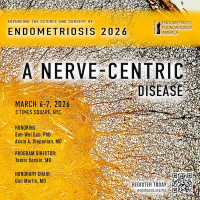College of Human Medicine, Michigan State University
Principal Investigator:
Dr. Niraj R. Joshi (Ph.D.) Department of Ob/ GYN & Reproductive Biology
Summary
Identification of mechanisms involved in ectopic lesions development and growth is critical for developing better drug and targeted therapies which could restrict lesion growth, and decrease inflammation leading to improved quality of life and fertility in women with endometriosis.
Our focused hypothesis in this research is that the altered Hippo pathway and aberrant expression of YAP in ectopic lesions of women and baboons with endometriosis [10] regulates cellular processes such as cell proliferation, survival and invasion, all factors that are associated with the pathophysiology of endometriosis Our rationale for choosing to focus on the Hippo pathway and YAP is based on our strong preliminary data that clearly demonstrate that Hippo pathway and its major downstream effectors YAP/ TAZ which are aberrantly regulated in endometriosis as observed in our preliminary data and inhibition of YAP may be able to restrict the ectopic lesion growth. In this study, we will focus on the Hippo pathway and YAP in the and will explore TAZ functions and its interactions with YAP in the context of endometriosis in future studies. We believe that understanding of the role that this pathway and YAP in the pathology of endometriosis may lead to improved therapeutic outcomes and development of non-steroidal drugs for endometriosis treatment.
[10] Zeitvogel A, Baumann R, Starzinski-Powitz A. Identification of an invasive, N-cadherin-expressing epithelial cell type in endometriosis using a new cell culture model. Am J Pathol 2001; 159:1839-1852
Bio
 Dr. Niraj Joshi earned his Ph. D. degree from The M. S. University of Baroda in India following which he participated in the prestigous Frontiers in Reproduction course at the Marine Biological Laboratory, Woods Hole, USA. Dr. Joshi joined Department of Obstetrics, Gynecology and Reproductive Biology at Michigan State University for his post-doctoral research, focusing on understanding the role of microRNAs (miRs) in endometriosis related progesterone resistance and infertility. He is currently Assistant Professor in the Department of Obstetrics, Gynecology and Reproductive Biology at Michigan State University. He is interested in understanding the role of Hippo singnaling pathway, an evolutionarily conserved pathway which plays a key role in regulating organ size and growth and its dysregulation results in tissue overgrowth and tumor formation, in the context of normal endometrial physiology and endometriosis and also exploring if inhibition of downstream targets of Hippo pathway could be used as potential non-steroidal targets for the treatment of endometriosis.
Dr. Niraj Joshi earned his Ph. D. degree from The M. S. University of Baroda in India following which he participated in the prestigous Frontiers in Reproduction course at the Marine Biological Laboratory, Woods Hole, USA. Dr. Joshi joined Department of Obstetrics, Gynecology and Reproductive Biology at Michigan State University for his post-doctoral research, focusing on understanding the role of microRNAs (miRs) in endometriosis related progesterone resistance and infertility. He is currently Assistant Professor in the Department of Obstetrics, Gynecology and Reproductive Biology at Michigan State University. He is interested in understanding the role of Hippo singnaling pathway, an evolutionarily conserved pathway which plays a key role in regulating organ size and growth and its dysregulation results in tissue overgrowth and tumor formation, in the context of normal endometrial physiology and endometriosis and also exploring if inhibition of downstream targets of Hippo pathway could be used as potential non-steroidal targets for the treatment of endometriosis.








